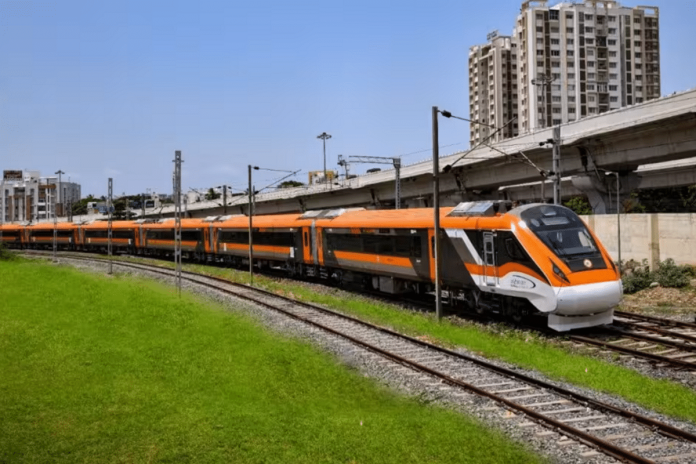Hindalco aims to support Railways’ Net Zero Goals and freight capacity doubling with innovative freight wagon designs.
With a planned investment of Rs 2,000 crore, Hindalco has already established technology tie-ups to bring these advanced technologies to India.
Hindalco Industries Ltd is planning to invest around Rs 2,000 crore in a partnership with the railways, as announced by Kumar Mangalam Birla, chairman of Hindalco, during the company’s 64th Annual General Meeting (AGM).
The investment aims to introduce new extrusion and fabrication technologies to India.
The company is particularly excited about collaborating with the Indian railways and the passenger coach manufacturing ecosystem for the high-speed Vande Bharat trains. With a planned investment of Rs 2,000 crores, Hindalco has already established technology tie-ups to bring these advanced technologies to India.
Hindalco is fully committed to supporting the railways’ objectives of achieving net zero emissions and doubling freight capacity. In the coming months, they plan to introduce three additional designs of freight wagons, each catering to specific end-use applications such as bagged cement and food grains.
In addition to their partnership with the railways, Hindalco is also investing Rs 2,000 crore to establish a copper and e-waste recycling facility. This facility will be the first of its kind and will address the lack of advanced metal extraction and refining technologies in India.
By bringing cutting-edge technology to the country, Hindalco aims to contribute to the circular economy agenda and provide a concrete solution for e-waste management.
Hindalco aims to expand its electric vehicle (EV) manufacturing in India by collaborating with original equipment manufacturers (OEMs) to develop and produce essential components like battery enclosures, motor housings, busbars, structural and safety components, and lightweight load bodies, as per Mint report.
The company’s ongoing projects for battery foils, coated aluminium fins, and aerospace-grade extrusions are progressing well, positioning Hindalco as an ideal partner for various industries seeking new product development and supporting the “make-in-India” initiatives.
Birla attributed the increase in private capital expenditure to the government’s efforts, particularly its push for infrastructure investments and pragmatic policies like the production-linked incentives scheme.
These initiatives have led to a surge in private capital expenditure, with India well-positioned to play a pivotal role in the global corporations’ adoption of the China+1 strategy.


